Stephanie Burt is Professor of English at Harvard University and the author of several previous books of poetry and literary criticism, among them Advice from the Lights, Belmont and Close Calls with Nonsense, as well as The Poem Is You.
I had the opportunity to interview Stephanie, which you can read below.
First of all, welcome to Geeks OUT! Could you tell us a little about yourself?
I write about poems and comic books and science fiction and pop songs. I teach at Harvard. My hair is longer than it’s ever been and my nesting partner just dyed it ultramarine and I love it. Together we take care of two human kids and two cats and one dog, who is looking at me with slow sad eyes right now, because she wants another walk, even though she’s had five today. Oh, fine. Let’s go, Toasty. [walks dog] Also I am an easy mark. Just make big sad eyes at me and I’ll do anything.
What can you tell us about your latest book, We Are Mermaids? What inspired the collection?
It’s about finding queer and trans community. It’s about reaching out and connecting to people who share your fins and scales, or your experience of roundness in a straight world, or your lifelong identification with the Red Queen of the Hellfire Club, Kate Pryde, the Captain of the privateer Marauder. It’s about my friends. It’s also about punctuation marks. Each punctuation mark that speaks a poem represents a particular queer community. Trans girls, of course, are quotation marks.
Why mermaids?
Because we’re comfortable where the straights can’t be comfortable, and very much vice versa. Because we’re not dangerous, really, but land people think we are. Because everyone knows we’re trans. Because we’re attested in many traditions. Because they’re low femme, like me, with sparkly hair. Because we like clams.
Also because if we’re going to get through global climate change, we need to learn to live with the water in ways that coastal humans have only sometimes learned to do so far.
What drew you to storytelling, particularly to the poetry medium? Were there any favorite writers or stories that sparked your own love and interest in writing and poetry?
Early on: Asimov, and Chris Claremont and Ann Nocenti and Bill Sienkiewicz and Paul Smith, and William Butler Yeats and Samuel R. Delany and James Tiptree, Jr., in middle school. Robert Lowell made me think that I could and should write about my teen baby-trans angst in painful detail. Elizabeth Bishop showed me that I didn’t have to write that way: there were other options. John Donne. Marianne Moore. Paul Muldoon.
If you want a single wormhole into the part of me that makes up poems, as poems, you might not do better than Marianne Moore’s “The Steeple-Jack.” But if you want a window into the part of me that wants to tell stories, period, try New Mutants, vol. 1, no. 21.
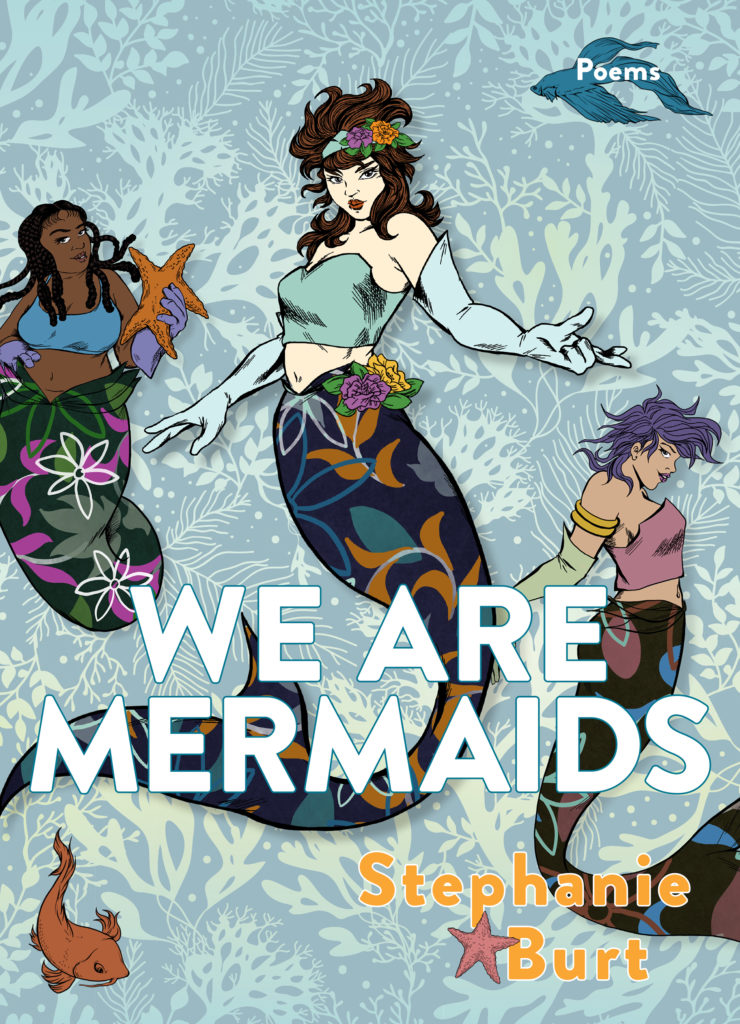
How would you describe your creative process?
Find time, make time, try not to blow off your friends. I write when I can. I’m lucky: my kids are old enough that I can ask them to wait five minutes for something and I won’t feel too guilty about that. Seriously, though, I just… try to find the time. I have no idea.
What are some of your favorite elements of writing? What are some of the most challenging?
Definitely magnesium, followed by fluorine. I’m sorry. I’ll show myself out now.
For real? I have come to think of even my weirdest and most personal writing as social. Writing and reading poems, in particular, lets me share, and embody, and make interesting to others (if the poem works), parts of myself I did not even know were there.
I have trouble knowing when poems are finished. And I can’t come up with satisfying narrative work all by myself. I used to think I couldn’t tell stories. Now I think that when I’m on my own I don’t want to tell stories, but I love telling stories in collaboration: tabletop role-playing games, for example, or fanfiction (which is a kind of collaboration with existing characters and stories), or just co-writing comics scripts and prose. (I’ve written published fiction together with other authors, such as Mara Hampson and Rachel Gold, and I’m certain to do more of that.)
As a creative, who or what would you say are some of your greatest creative influences and sources of inspiration?
Now that’s a broad question! The novels of Rachel Gold. The music of Game Theory and the Loud Family. New Mutants comics by Vita Ayala and Rod Reis. The Songs and Sonets of John Donne. Commissions from my friends, allies, and editors, seriously—the punctuation poems in We Are Mermaids came about because Nicholas Nace from Hampden Sydney Poetry Review asked if I had any punctuation poems, and the Dazzler and Plastic Man poems are indirect commissions from the comics scholar and critic Douglas Wolk!
What’s a question you haven’t been asked yet but wish you were asked (as well as the answer to that question)?
Hi, I’m contacting you on behalf of a company famous for publishing superhero comics. Would you like to write one? Why, yes, I would.
Besides your work, what are some things you would want readers to know about you?
I miss attending Minnesota Lynx games. I used to make phone calls and knock on doors for the DFL (the Democratic Party in Minnesota) and I’m pretty serious about working within existing institutions to make progressive change. (If you get the chance to knock on doors, and you think you can temperamentally do it, please try it!) I love capybaras and wombats. I play the melodica. I wish you would read the very queer poetry of Angie Estes, who has been sparkling since the late 1990s. Also, a lot of lovely poetry and some neat comics are happening in Aotearoa New Zealand. I wish this site’s primarily North American readers knew about that.
Are there any other projects you are working on and at liberty to speak about?
Several! Rachel Gold and I and several other critics and writers are putting together a book of essays called Reading the X-Men, long-form chapters on aspects of the Marvel mutants and their metaphor—there’s one about schools and education, another about nations and nationalism, another about Storm and Afro-diasporic religion, another on Illyana Rasputin and complex trauma recovery. Columbia University Press expects to publish that one when it’s finished.
I’m doing a book of short essays on single queer or trans poems—one essay, one poems—for Harvard University Press. Working title: 30 Super Gay Poems!!! It’s kind of a sequel to a book of 60 essays on contemporary poems (only some of them super gay) that I did for Harvard in 2016.
There will be an anthology of older (pre-1922) queer or queer-coded or queer-adjacent poems in English, also from Columbia, that Drew Daniel (Johns Hopkins professor, also a member of Matmos) and Melissa Sanchez (Penn) and I are compiling. I was surprised to learn that no such book existed. So we’re putting one into the world.
And more fiction (co-written, of course). And, you know, more poems.
What advice might you have to give to other aspiring writers and poets?
Find your peers—people your age or life stage who share your tastes and interests in writing. Send your work out, when you’re ready, to the least famous magazine (or website) that regularly publishes work you genuinely like. Read widely and at random. Read old stuff, too. And if you write poetry, please, please read other languages. Not just work from other languages in English translation: give yourself the ear and the experience that comes from reading other languages. Even if all you have is middle school Latin or Spanish or a heritage language you mostly hear or speak, that’s enough to read poems with a dictionary or facing-page translation. Then try making your own rough poetic translation, or adaptation. That’s the single best way to improve your ear. The second best is finding peers.
Finally, what LGBTQ+ books/authors would you recommend to the readers of Geeks OUT?
I already named a few! In terms of contemporary work, novels by Rachel Gold and Charlie Jane Anders, comics by Vita Ayala and Leah Williams, poems by Chen Chen and D. A. Powell and Trace Peterson and Cat Fitzpatrick (some of these people are personal friends, others I swear I have never met). Maybe that’s enough for now?
Header Photo Credit Stephanie Mitchell

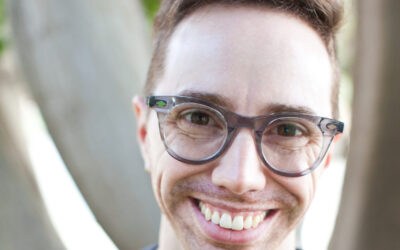
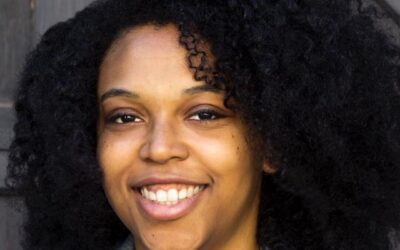
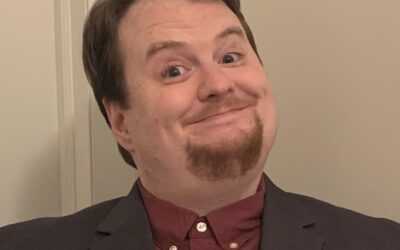
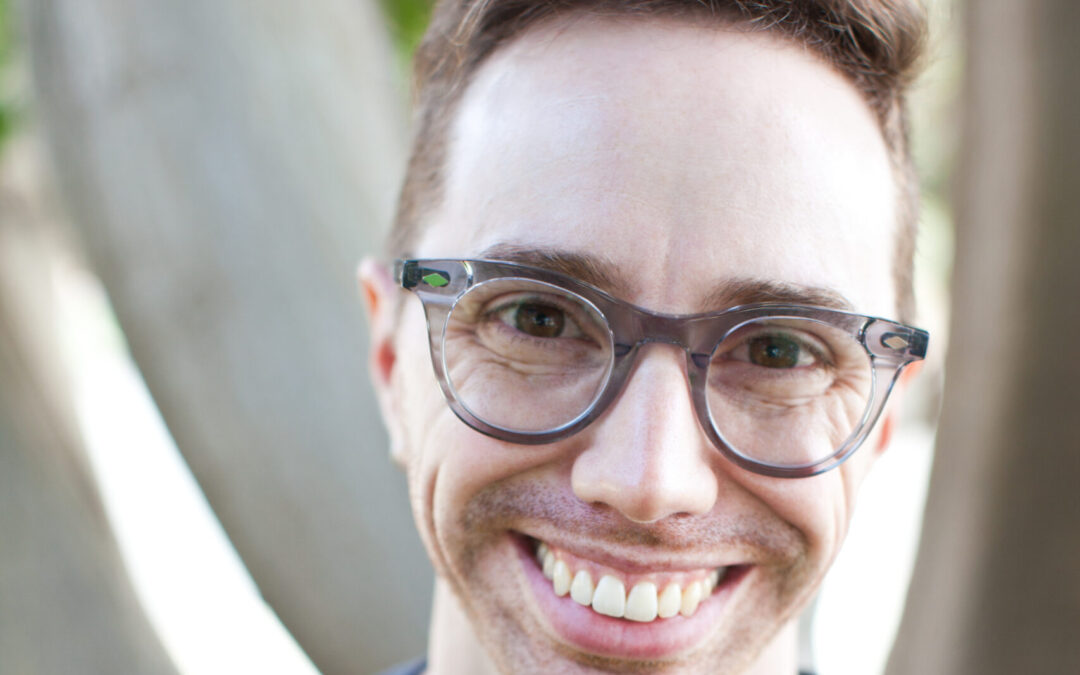
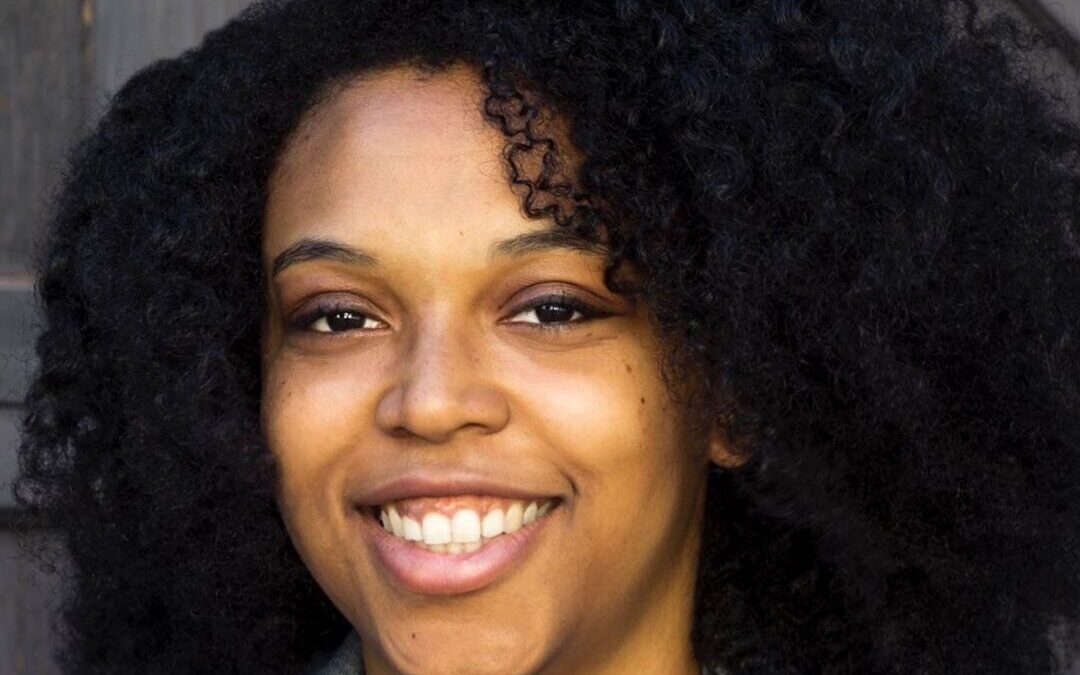
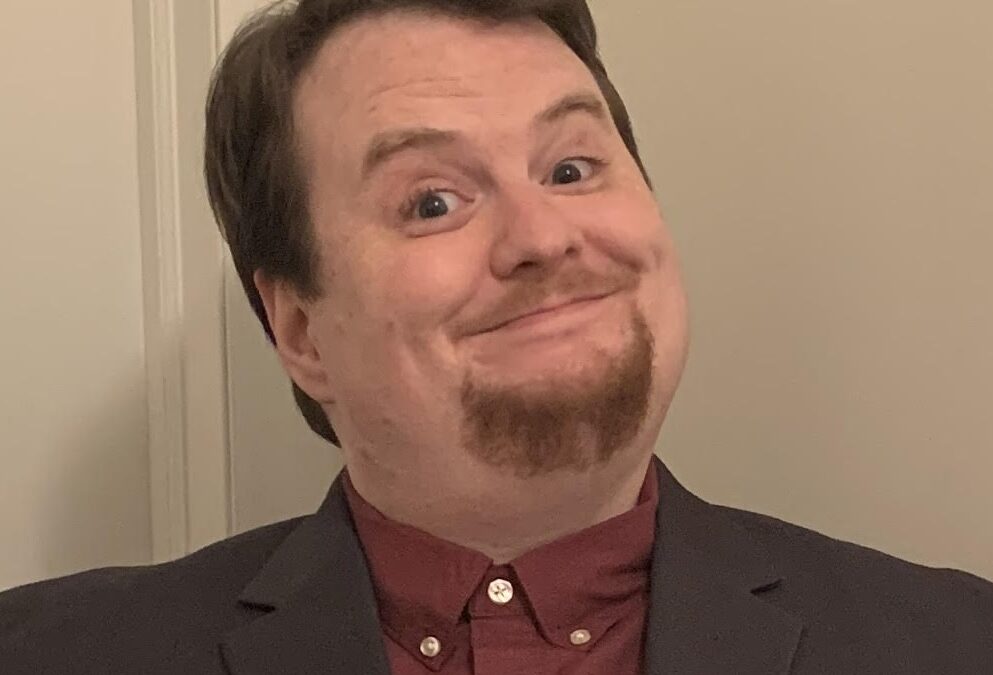
0 Comments